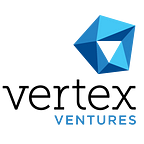Q&A with Insik Rhee, Vertex US Partner
In Silicon Valley, we are blessed to have 2–3 generations of entrepreneurs who have pioneered ahead and won at a grand scale. These same pioneers who have won their own struggles to build amazing successes choose to invest — not just with money, but with their time — into the next generation of entrepreneurs. They become angels/advisors/mentors and often take time to give advice and connections for the next crop of entrepreneurs — sometimes during the course of a first meeting. The willingness to “pay it forward” is part of what makes our culture special.
You often speak of the importance on coaching and mentorship within the startup ecosystem, why is that?
Being an entrepreneur is a very demanding and often lonely endeavor. A founder needs to constantly make decisions about what product/features to build for audiences and use cases, with very little or no data to validate a need. Many times, the product vision precedes any existential proof of market/demand. Over the course of months and sometimes years, nagging doubts and uncertainties will linger, even after a company and team are formed to rally around the idea/vision. Avoiding failure isn’t the goal. It’s about absorbing lessons quickly and moving forward without losing confidence. It’s emotionally and psychologically draining. Every founder should seek a mentor.
What are the qualities of a good coach or mentor?
A great mentor comes with two important qualifications — a positive winning experience, and on-demand availability. A mentor can recollect not just their fabulous wins, but countless setbacks during the journey, and use the vast library of lessons to help entrepreneurs in a 1:1 setting. There are many great books and blogs that can sprinkle anecdotes and generalizations of “how to succeed”. Unfortunately, that’s not enough for a founder. A founder needs someone who can provide real-time feedback to very specific situations of importance as they are happening, and get in-the-moment coaching. Friday evening calls/texts are the norm here.
Who was an influential mentor in your career? What was a key takeaway you implement to this day?
During my 2nd startup (Opsware) we were privileged to have wonderful mentors such as Mike Homer, Eric Hahn and Bill Campbell — their impact was felt by not just what they said to us, but how they made us feel. Despite our constant setbacks and churn and upward/downward/sideways momentum quarter after quarter, we were always inspired to try new things and find new strength and resolve. They encouraged us to always think big and not settle for being #2. At the time, I underappreciated the pep talk — after all, they often didn’t understand the depth of the problems we were trying to solve. But looking back, what I recall is that every meeting started and ended with a big hug — and that made a tremendous impact to our morale and confidence to continue to tread forward. They also helped us focus on what’s most important — recruiting, educating, and retaining the best team around us.
As a VC it’s often difficult to have the same level of trusted confidant relationship with founders — however that doesn’t mean we should shy away from the challenge. While we may not start and end every conversation with a hug, it’s great when we can accomplish the comradery (and yes it’s great when the occasional hug does happen)
Some takeaways:
- Try to match founders with great independent mentors who can eventually become board members
- Focus on building confidence and steering teams toward success, rather than diving into failure mode analysis. “Told you so” is not helpful and downright demoralizing.
- It’s not just what you say that matters, it’s how you make them feel.
What tips do you have for founders on selecting a mentor? How should they work with them?
Look for a winner. Winners make the best coaches. Ideally, former startup founders/execs who have built their own companies to IPO or M&A. Mentors should inspire confidence — and that comes best by speaking with first-hand experience.
Try to build a connection based on your journey and mission of the company. Mentors want to share in your excitement — so show it! Their motivations are rarely for financial gain. If they are interested in investing that’s also great, but an investor does not qualify as a mentor — on the contrary, it can actually cause friction and reduce transparency.
The goal is to have someone who understands you at a fundamental, behavioral level (how you make decisions, conduct yourself in front of the company, receive/provide feedback and handle stress) — and provide empathy and constructive feedback. This means finding someone you can feel comfortable sharing deep concerns and vulnerabilities with. It’s a serious endeavor on both sides — so it’s important to be deliberate, prepared, and make each interaction count. And be thankful.
What tools or resources does Vertex US offer their portfolio companies in the form of coaching and mentorship?
At Vertex, we run a series of Breakfast@Vertex seminars for continuous education for founders. This smallish group event is run by domain experts — many of whom would be amazing mentors in their own right — and help educate our founders on various aspects of company building. Some past speakers include:
- Michael Baum, founding CEO of Splunk (and 4 other startups), “How to find product-market fit”
- Maynard Webb, former COO eBay, board member at VISA and Salesforce, “How to manage a board”
- Scott Dietzen, CTO at BEA, President/CTO at Zimbra, CEO at Pure Storage, “Transitioning from a technical leader to CEO”
- James Kim, Managing Partner at Qatalyst partners, “How to manage the M&A process”
Breakfast@Vertex is a roundtable held in our boardroom (typically 10–15 attendees), so every participant has opportunities to share and trade ideas.
